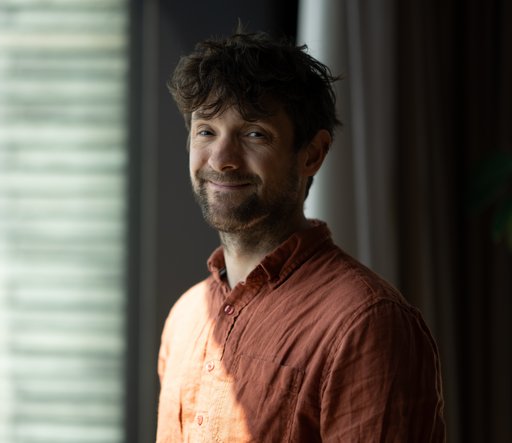
5 min read by Ankita Atrey
Mark Simkin joined Aarhus University (AU) in August 2025 as a Tenure Track Assistant Professor in the Cryptography and Cybersecurity section, where he will contribute to research and teaching in secure computation, privacy-enhancing technologies, and the cryptographic foundations of decentralized systems. He earned his Bachelor's and Master's degrees in Computer Science from Saarland University in Germany, followed by a research internship at Academia Sinica in Taiwan. In 2019, he obtained his PhD from Aarhus University, advised by Professor Ivan Damgård and co-advised by Professor Claudio Orlandi, focusing on secure computation in distributed systems. Mark remained at AU as a postdoctoral researcher with Professor Kasper Green Larsen, expanding his research into algorithms and theoretical computer science. He then spent three years at the Ethereum Foundation (EF) as a cryptography researcher, contributing to blockchain scalability and post-quantum cryptography projects. Currently, he collaborates with Flashbots to mitigate financial manipulation in decentralized systems. His work links foundational cryptographic theory with practical applications in privacy-preserving protocols and distributed security.
Reflecting on his time at the Ethereum Foundation and ongoing collaboration with Flashbots, he shares:
¨At the Ethereum Foundation, I contributed to foundational advancements in blockchain security. The Foundation doesn’t control Ethereum, but it plays a major role in shaping its technical direction. I worked on two key areas: scalability and post-quantum cryptography.¨
¨In terms of scalability, the focus was on improving throughput and storage efficiency in decentralized systems like Ethereum, which are inherently slower than centralized systems such as Visa, all while maintaining strong security guarantees.¨
¨For post-quantum cryptography, I worked on designing and benchmarking cryptographic tools that would remain secure even in a future where quantum computers could break many of today's cryptographic systems.¨
Mark is currently collaborating with Flashbots, a research and development organization focused on tackling Maximal Extractable Value (MEV), a type of financial manipulation inherent to decentralized systems.
¨In classical financial markets users are protected by laws, but since those cannot be easily enforced in distributed systems, cryptographic solutions must ensure that no malicious financial manipulations take place. At Flashbots, we build cryptographic tools and anonymous communication systems to help prevent this kind of exploitation.¨
When asked about his research directions at Aarhus University, he explains:
¨Returning to Aarhus in a faculty role, my research continues to explore the intersection of cryptography, privacy, and decentralized technologies. A major challenge in cryptographic systems is the trade-off between privacy and performance. Systems that offer strong privacy guarantees tend to be slow, while fast systems often weaken privacy. I’m exploring ways to overcome this, for example, by combining advanced cryptography with trusted hardware, so we can build efficient, privacy-preserving systems that are viable in practice. I’m also working on designing anonymous communication protocols that are resistant to censorship and surveillance, which are critical tools for financial and political systems that lack centralized enforcement.¨
Mark will soon be opening a PhD position in his research group, focused on cryptographic protocols for privacy, security, and real-world deployment — feel free to reach out or keep an eye out!
Speaking about the broader social impact of his work, he adds:
¨Cryptography is the foundation of online privacy. Whether it’s securing your chats, protecting your bank details, or ensuring your search history is private, cryptography makes that possible. It allows systems to function while maintaining users’ privacy and security.¨
¨Not all classical currencies are equally stable and reliable. When the local currency is not a reliable store of value, then cryptocurrencies can provide a meaningful security and social good. While not perfectly stable themselves, they can be significantly more reliable than some hyperinflated national currencies. In such cases, they serve a real social purpose.¨
When asked what brought him back to Aarhus University, he smiles and explains:
¨AU is an extraordinary place for cryptographic research. The group is world-renowned, technically deep, and incredibly collaborative. I’d absolutely recommend it to any aspiring researcher in the field. Moreover, it’s a safe, clean, and well-functioning place to live. The work culture is healthy, and people are generally kind and open.¨
Outside of work, Mark finds balance in an unexpected but rewarding way:
¨I’m into indoor climbing, specifically rope climbing, which might sound a bit unusual for Denmark, but it’s a great way to stay active and social. It’s more than just exercise. I often hang out with people there, cook together, and just unwind.¨
1) Katharina Boudgoust, Mark Simkin
The Power of NAPs: Compressing OR-Proofs from Collision-Resistant Hash Functions
2) Satrajit Ghosh, Mark Simkin
The Communication Complexity of Threshold Private Set Intersection (Link to talk)
3) Mathias Hall-Andersen, Mark Simkin, Benedikt Wagner
Foundations of Data Availability Sampling